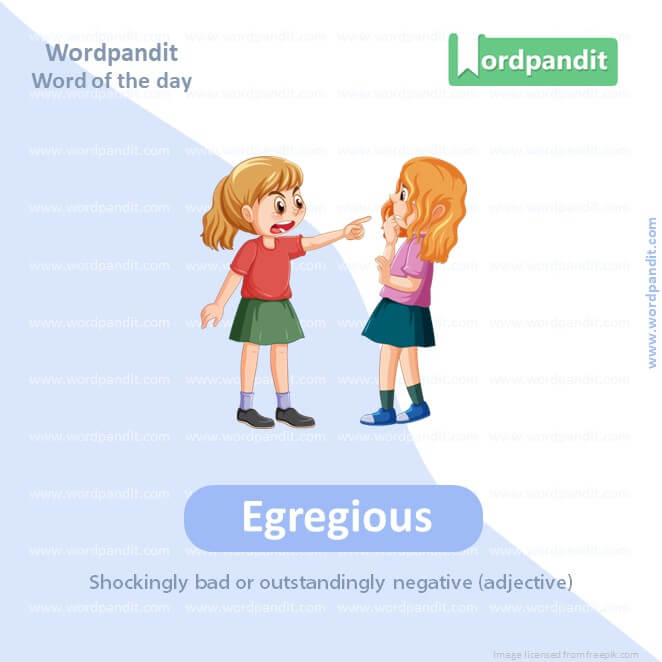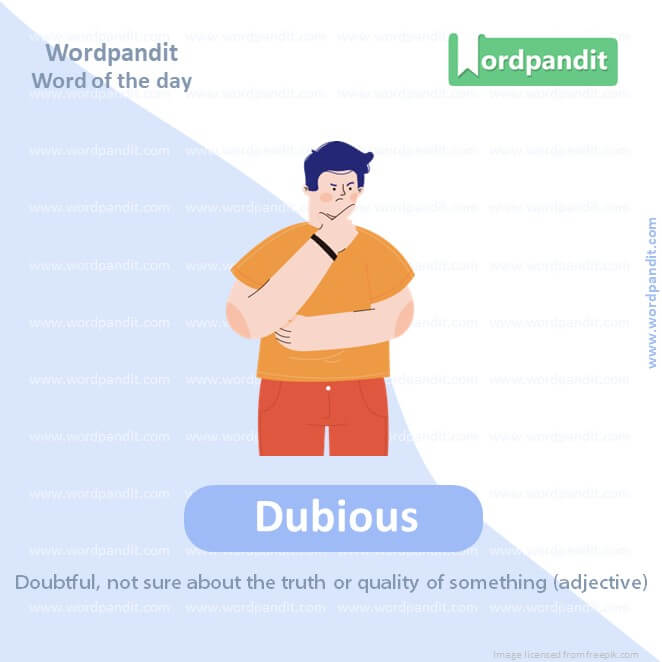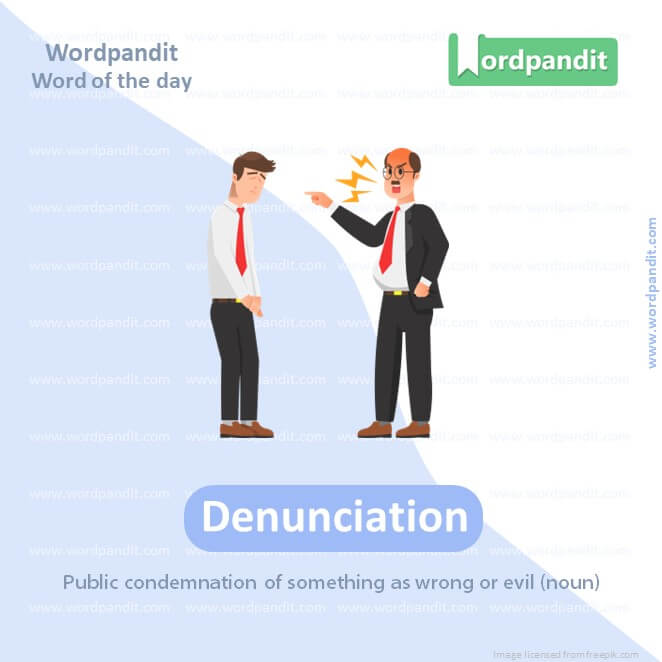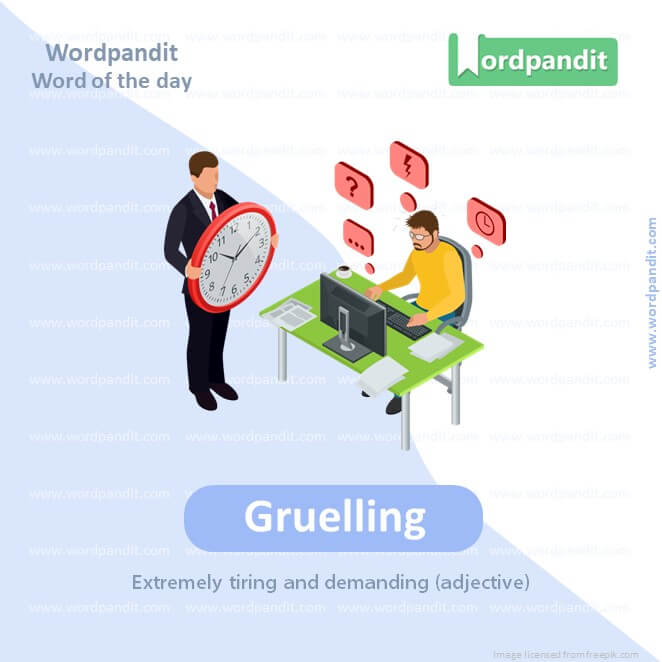Daily Vocabulary from Leading International Newspapers: November 21, 2023
Daily Vocabulary Words: List of Daily Used Words in Leading International Newspapers
Hi there. Welcome to this special section @ Wordpandit.
Our endeavour here is very simple: to highlight important daily vocabulary words, which you would come across in leading newspapers in the country. We have included the following newspapers in our selection:
• The New York Times
• The Washington Post
• Scientific American
• BBC
• The Guardian
• Psychology Today
• Wall Street Journal
• The Economist
We are putting in extensive work for developing your vocabulary. All you have got to do is be regular with this section and check out this post on a daily basis. This is your repository of words that are commonly used and essentially, we are posting a list of daily used words. Hence, this has significant practical application as it teaches you words that are used commonly in leading publications mentioned above.
Visit the website daily to learn words from leading international newspapers.

WORD-1: Egregious
CONTEXT: Expulsion should be saved for the most egregious transgressions and considered only once the accused has due process.
SOURCE: Washington Post
EXPLANATORY PARAGRAPH: Egregious is when something is really bad or wrong, like if someone cheated in a game in a very obvious way, that would be egregious.
MEANING: Shockingly bad or outstandingly negative (adjective).
PRONUNCIATION: ‘ih-gree-juhs’
SYNONYMS: Appalling, Horrific, Shocking, Outrageous, Flagrant, Heinous.
USAGE EXAMPLES:
1. His behavior at the party was egregious.
2. The mistake in the report was egregious.
3. She was criticized for her egregious conduct.
4. The company’s negligence was egregious.

WORD-2: Fraudulently
CONTEXT: Santos sought to fraudulently exploit every aspect of his House candidacy for his own personal financial profit.
SOURCE: Washington Post
EXPLANATORY PARAGRAPH: Fraudulently means doing something in a sneaky and dishonest way, like lying about who you are to get a toy that isn’t yours.
MEANING: Done in a way that is intended to deceive or cheat; dishonestly (adverb).
PRONUNCIATION: ‘fraw-ju-lent-lee’
SYNONYMS: Deceptively, Dishonestly, Unlawfully, Illegitimately, Underhandedly, Falsely.
USAGE EXAMPLES:
1. He fraudulently claimed to be the owner.
2. The documents were obtained fraudulently.
3. She fraudulently used someone else’s identity.
4. The contract was signed fraudulently.
WORD-3: Reluctant
CONTEXT: Ethics Committees, wary of influencing trials, have historically been reluctant to act until the legal process ends.
SOURCE: Washington Post
EXPLANATORY PARAGRAPH: Reluctant is when you don’t really want to do something, like when you feel shy about going to a new school or don’t want to eat vegetables.
MEANING: Unwilling or hesitant to do something (adjective).
PRONUNCIATION: ‘ri-luk-tuhnt’
SYNONYMS: Hesitant, Unwilling, Disinclined, Resistant, Averse, Loath.
USAGE EXAMPLES:
1. She was reluctant to answer the question.
2. He seemed reluctant to join the group.
3. They were reluctant to make changes.
4. The child was reluctant to leave the playground.

WORD-4: Dubious
CONTEXT: if obtained under dubious circumstances, might not warrant expulsion.
SOURCE: Washington Post
EXPLANATORY PARAGRAPH: Dubious is when you’re not sure if something is true or good, like when someone tells you a story that sounds a little bit like make-believe.
MEANING: Doubtful, not sure about the truth or quality of something (adjective).
PRONUNCIATION: ‘doo-bee-us’
SYNONYMS: Skeptical, Uncertain, Doubtful, Questionable, Suspect, Unconvinced.
USAGE EXAMPLES:
1. His excuse for being late was dubious.
2. She cast a dubious glance at the strange food.
3. The project’s success seemed dubious.
4. They were dubious about the plan’s feasibility.

WORD-5: Denunciation
CONTEXT: It would be better for Congress to revert to that norm before an inevitably partisan tit-for-tat denunciation of speech becomes established practice.
SOURCE: Washington Post
EXPLANATORY PARAGRAPH: Denunciation is like telling on someone very seriously because they did something very bad, like telling a teacher if someone was being really mean to others.
MEANING: Public condemnation of something as wrong or evil (noun).
PRONUNCIATION: ‘de-nun-see-ay-shuhn’
SYNONYMS: Condemnation, Criticism, Accusation, Censure, Reproach, Blame.
USAGE EXAMPLES:
1. The politician faced denunciation for his actions.
2. Her speech was a denunciation of the policy.
3. The article was a denunciation of corruption.
4. The leader’s actions led to widespread denunciation.

WORD-6: Gruelling
CONTEXT: the three-week trial was the most gruelling experience of my life, I trusted the jury to acquit us for two reasons.
SOURCE: Guardian
EXPLANATORY PARAGRAPH: Gruelling is when something is really, really hard and makes you very tired, like having to clean up your entire messy room all by yourself.
MEANING: Extremely tiring and demanding (adjective).
PRONUNCIATION: ‘groo-uh-ling’
SYNONYMS: Exhausting, Arduous, Strenuous, Taxing, Demanding, Rigorous.
USAGE EXAMPLES:
1. The marathon was a gruelling experience.
2. They underwent gruelling training.
3. The work schedule was gruelling.
4. She completed the gruelling hike up the mountain.
WORD-7: Conscience
CONTEXT: the human spirit and the human conscience and trusting ourselves again – these things are the harbingers of great change.
SOURCE: Guardian
EXPLANATORY PARAGRAPH: Your conscience is like a little voice inside you that helps you know right from wrong, like when it tells you to share your toys with your friend.
MEANING: A person’s inner sense of what is right or wrong in their actions and thoughts (noun).
PRONUNCIATION: ‘kon-shuhns’
SYNONYMS: Morality, Ethics, Scruples, Principles, Inner voice, Moral compass.
USAGE EXAMPLES:
1. He followed his conscience and told the truth.
2. Her conscience wouldn’t allow her to lie.
3. They acted according to their conscience.
4. His conscience was troubled after the incident.
WORD-8: Annexation
CONTEXT: The options ranged from outright annexation of the land by Israel, returning the West Bank to Jordan or the establishment of a Palestinian state.
SOURCE: Guardian
EXPLANATORY PARAGRAPH: Annexation is when one place is taken over and becomes part of another place, like if a bigger playground decides to make a smaller playground next to it part of its own.
MEANING: The act of adding or attaching one thing to another, especially in terms of land or territory (noun).
PRONUNCIATION: ‘an-ek-say-shuhn’
SYNONYMS: Takeover, Acquisition, Incorporation, Seizure, Appropriation, Absorption.
USAGE EXAMPLES:
1. The annexation of the territory caused controversy.
2. They protested against the annexation.
3. The city’s growth was due to the annexation of nearby areas.
4. The country faced international criticism after its annexation of the region.
WORD-9: Poignantly
CONTEXT: He asked how much more suffering we must endure before the world stops this, then most poignantly asked the viewers
SOURCE: Guardian
EXPLANATORY PARAGRAPH: Poignantly is when something makes you feel really strong emotions, especially sadness, like when a story ends in a way that makes you feel both happy and a little bit sad.
MEANING: In a way that evokes a strong sense of sadness or emotion (adverb).
PRONUNCIATION: ‘poin-yuhnt-lee’
SYNONYMS: Touchingly, Emotionally, Movingly, Sentimentally, Heartrendingly, Stirringly.
USAGE EXAMPLES:
1. The movie ended poignantly.
2. She spoke poignantly about her childhood.
3. The scene was poignantly depicted in the book.
4. His words struck everyone poignantly.
WORD-10: ingrained
CONTEXT: a deeply ingrained aversion to telling people I stammer.
SOURCE: Guardian
EXPLANATORY PARAGRAPH: Ingrained is like something that is really stuck in something else. For example, if you get dirt on your hands and it’s hard to wash off, it’s ingrained.
MEANING: Deeply embedded or firmly fixed (adjective).
PRONUNCIATION: ‘in-graynd’
SYNONYMS: Deep-rooted, Entrenched, Fixed, Embedded, Established, Firmly set.
USAGE EXAMPLES:
1. The habit was so ingrained that he couldn’t break it.
2. The beliefs are deeply ingrained in the culture.
3. The stain was ingrained in the fabric.
4. His values were ingrained from a young age.
vocabulary 10 sentence
In the fascinating world of language learning, one of the most vital and effective methods is the ‘vocabulary 10 sentence’ strategy. An incredibly valuable tool, the ‘vocabulary 10 sentence’ approach assists language learners in an immersive, organic, and contextual manner often used in learning environments.
The ‘vocabulary 10 sentence’ strategy is essentially a practice where learners incorporate a new vocabulary word into 10 different sentences. Doing this repeatedly creates a thorough understanding of the word’s meanings, usage, context, and nuances. It is a learning technique that imitates the natural language acquisition process.
In a ‘vocabulary 10 sentence’ exercise, learners begin with choosing a new word, then crafting ten unique sentences involving that word. While this can seem challenging initially, it rapidly enhances one’s cache of usable vocabulary. Moreover, it allows learners to grasp a different range of contexts and applications for every new word, encouraging them to experiment with their language skills.
In traditional vocabulary learning methods, words are often learned as standalone entities with rigid definitions. In contrast, the ‘vocabulary 10 sentence’ technique encourages an understanding that words are dynamic and can have different meanings based on the context they are used in. This technique helps remove the constraints of rote memorization and promotes active learning instead.
The ‘vocabulary 10 sentence’ technique can be utilized by language learners at all stages. Setting a daily target for learning new words through this method can significantly speed up language acquisition and understanding.
In conclusion, the ‘vocabulary 10 sentence’ strategy can revolutionize the way you learn new languages. This ingenious approach motivates learners to explore beyond a word’s basic definition, diving into its usage in various contexts. By incorporating the ‘vocabulary 10 sentence’ technique into your daily language learning routine, you will actively participate in your own learning process, making it more effective and enjoyable.













